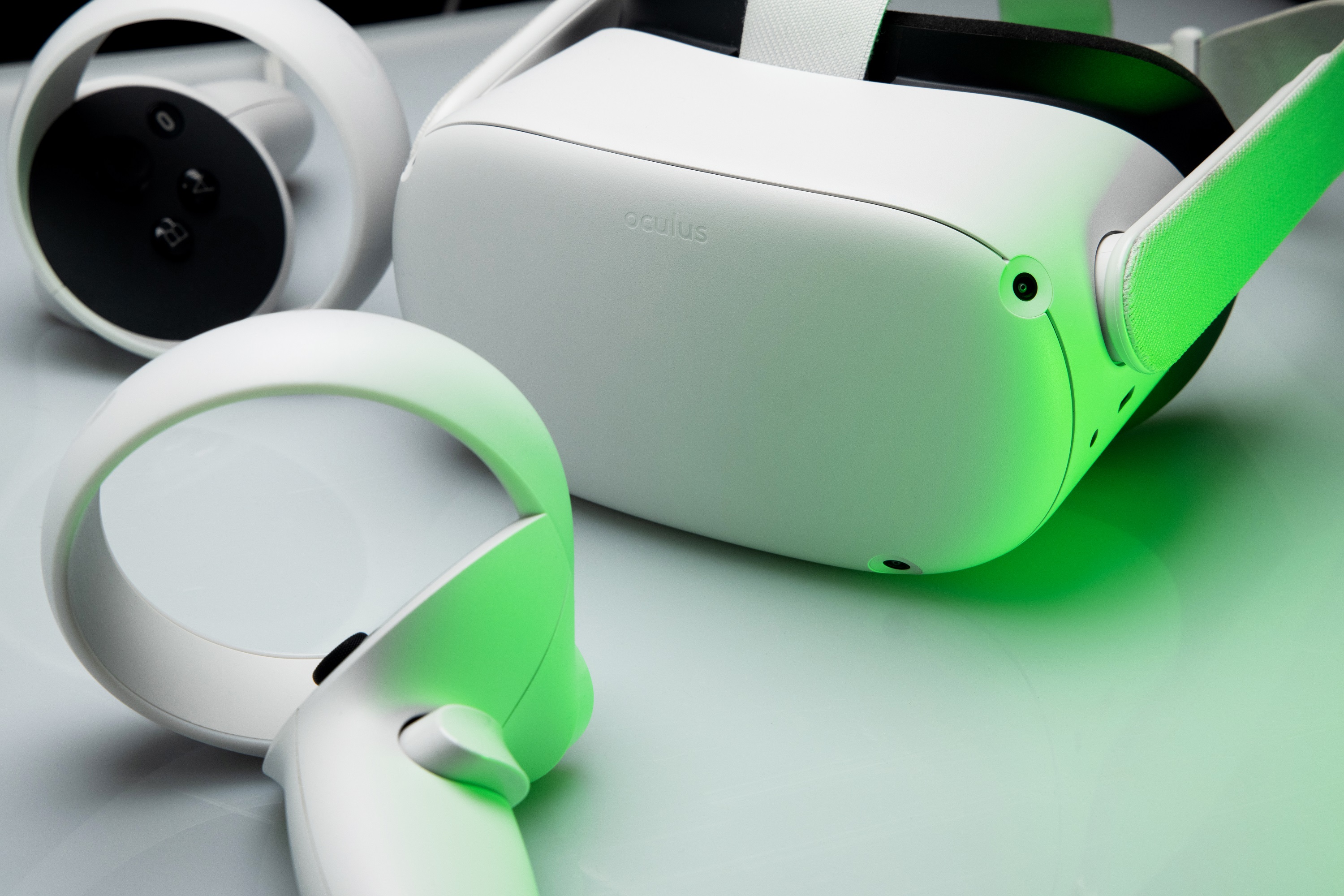
With the success of the Oculus Quest 2, many have been wondering when Meta would follow up with an Oculus Quest 3 or even an Oculus Quest Pro. A new report suggests that Meta's next headset might be coming very soon.
According to extended reality (XR) analyst and YouTuber Brad Lynch, as reported by Android Central, the Oculus Quest Pro, currently codenamed Cambria, is set to arrive in the second quarter of 2022 — placing the headset's release in an April to June window. That's typically when Meta — the company formerly known as Facebook — holds its developer conference.
Meta Cambria (Q2 2022) will include MiniLED screens. Targeting to sell 3 million HMD units in its first year.Quest 3 is planned to include uOLED. Meta signed deal to build production lines for these displays with Changxin TechnologyConnect 2023 announce/release soon afterJanuary 4, 2022
Given that Meta changed the name of the Oculus Quest 2 to the Meta Quest 2, it's likely that this project is codenamed internally as Meta Cambria, as Lynch suggested in his tweet.
Lynch's report is also corroborated by Display Supply Chain Consultants, or DSCC, which also claims that Meta is set to launch a "high-end headset" in 2022. Per DSCC's report, which also swings in past comments by Meta CEO Mark Zuckerberg at Connect 2021, said Project Cambria "will enable high resolution color passthrough AR. The device will be 'pushing the limits of display technology and form factor' and will be based on pancake optics, which enable a slimmer form factor."
Meta already confirmed that Project Cambria would be coming out in 2022, though no specific date was given. That's more promising than the reports we've seen that Microsoft's AR/VR Hololens headset is dead in the water, though the Microsoft Hololens 3's death is greatly exaggerated according to Microsoft.
Per Lynch, Project Cambria is looking to sell 3 million units and will feature Mini LED displays, like the ones found in the 2021 iPad Pro. Combining Mini LED with pancake optics, which involve folding light "several times over," could make for a thinner and lighter VR headset with fantastic colors.
Sign up to get the BEST of Tom's Guide direct to your inbox.
Get instant access to breaking news, the hottest reviews, great deals and helpful tips.
At Connect 2021 last year, Meta already confirmed that Project Cambria would not be a replacement to the Quest 2 or the Quest 3, but "a high-end device at a higher price point, packed with all the latest advanced technologies, including improved social presence, color Passthrough, pancake optics, and a lot more."
Meta also published a quick teaser video last year of Project Cambria, which looks very similar in design to the first Oculus Quest.
As for the Oculus Quest 3, Lynch claims the headset will not utilize Qualcomm's Snapdragon XR3 processor, which is expected to ship in late 2023. Instead, Meta is trying to make a chip of its own that's better designed for VR. And apparently Meta wants to differentiate itself from other VR headset makers by not packing in a Qualcomm chip. The current Meta Quest 2 uses the Snapdragon XR2.
According to Lynch, the Quest 3 will use uOLED displays.
Of course, fans are wanting to know whether they should buy a Meta Quest 2 now, wait for Project Cambria or hold out even longer for the Meta Quest 3. According to Lynch, Meta is hoping to announce the Quest 3 at or after Connect 2023 next year. The past few Connects took place in the September-October timeframe, meaning that Connect 2023 might take place then. If true, that means Meta's next-gen headset is almost two years off.
Imad is currently Senior Google and Internet Culture reporter for CNET, but until recently was News Editor at Tom's Guide. Hailing from Texas, Imad started his journalism career in 2013 and has amassed bylines with the New York Times, the Washington Post, ESPN, Wired and Men's Health Magazine, among others. Outside of work, you can find him sitting blankly in front of a Word document trying desperately to write the first pages of a new book.

